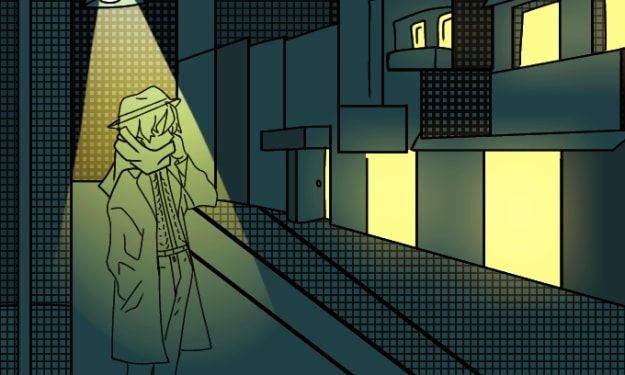The Dark Side Of Black History
The truth about slavery in America

When we learn about black history in school, we learn about the great leaders from a dark time in American history, but we don't realize how that dark time came about. In this story, I will tell you how slavery in America began and the unique facts you never learned in a history book. Would you be shocked if I told you there were black slave owners in all of the original 13 colonies? Would you be surprised if I told you the first indentured servant to turn into a lifelong slave was the property of a black man? Would you be amazed to find out that he won this right to enslave the first American against the wills of his white neighbor in the court of law?
We must first begin with indentured servants. With the American population's decline due to disease, starvation, and hostility between the Indians, the need to pay people became necessary. The tobacco farmers began to pay white indentured servants to come to American. They would spend 4 to 7 yrs of their life working on these farms and do as the landowners said to have a better life. In turn, they would pay for their voyage to the new world. After their service was up, Each servant received 50 acres of land. During this time, the growth of tobacco farms had grown so much that they couldn't get enough servants from Europe, so they looked to the slave trade already taking place to get more workers. When this group of Africans first came to the new world in 1621, they did not bring them here as slaves; they were brought here as indentured servants just like anyone else.
One of those servants was named Antonio. He had been captured in Portuguese Angola and sent to the slave trade by rival tribes. He worked on the Bennet tobacco farm. While working on this farm, the Powhatan Indians attacked the farm, and 52 of the 57 died. Not only did he prosper through this victory, but he earned his freedom 13 years later. He changed his name to Anthony Johnson, and he started a farm with his wife. They took on five servants and were granted 50 acres per servant for a total of 250 acres. Four of them were white, and one was black. During this time, it was typical for indentured servants' time to be extended. The farmers of this time didn't want to lose their servants' to freedom and have to give them land, so they would find reasons to say they were insubordinate so they could prolong their time. You see, not much has changed in the working environment. We still today push to earn raises by doing our best. Yet, we even become overlooked for the boss's son at times.
Anthony was no less an opportunist. Four of these servants, tired of the extensions, ran away. Three were white, and one was black. The white runaways earned another four years, and a white landowner took in the black one. His name was John Casor. He was the first servant to become a legal slave. Anthony sued his neighbor to win the right in court to own John forever as the first legal slave. It was this case that changed the status of servitude in America. There are reports this was happening to other servants, but this is the first time we see it as court-ordered. John Casor was officially the first permanent slave in America in 1621. Anthony then became known as the "Black Patriarch" of the first community of negro property owners in America.
I'll also tell you the story of a young boy known as April. He was named this due to the month for which he had been born. April was somewhat of a prodigy. He learned from his owner how to make cotton gins. William Ellison taught little April everything he knew. In 1817 at just 26 April earned his freedom and started a farm of his own. He was quite the accomplished blacksmith and used his services to work on his neighbor's machinery. His farm began by employing freed blacks. April's former owner then died, and he changed his name to William Ellison in homage. Due to cost, he soon realized if he were to have the biggest farm in the country, he would need to take on slaves. Then he took on a massive amount of slaves to rival all his neighbors. Greed became him, and he was known to be the wealthiest landowner of all South Carolina. By 1830 there were 3,775 black slave owners, With William being the largest. He had 1,000 acres of land and became a slave breeder. Children of his slaves sold before they were even born. He also kept a windowless building on his property to have a place to beat and torture slaves who had disobeyed.
A parallel to the holocaust comes to mind from when they corralled Jews into a windowless room with the intent to kill. William had even sent his sons to study abroad in France as most wealthy whites did. Skin color did not judge you; it was the amount of land you owned during the Antebellum years that mattered. Luckily William's great-grandson Dr. Henry S. Ellison III, spent his life caring for others and treating people of all classes whether they could pay him or not. It was only on his deathbed he told the history of his family. He spent his life trying to correct the wrongs of his family's past. Not any different than most whites who know their account from a negative light.
We all spend our lives trying to be different and better than our parents, whether they were drug addicts, uneducated, or even abusive. No one should have to pay for their family's historical errors. They have done their part to live a healthy and positive life' that should be enough for you, me, and even Dr. Ellison. I could list the rest of the black slave owners and their terrible stories, but why dwell in the past. We all need to be aware of history for what it is. We need to be honest with ourselves and look into everything we choose to fight. There is always another side to the story, and without looking into both, we become one-sided. I share these facts not to demonize black history but only to expose the clear facts that none of our families are 100% innocent. We need to end the questions of reparations and focus on living our own lives. We must fight to be the best version of ourselves we can be. Join in unity because we are far stronger together than we are as one.
About the Creator
Jen Benart
I'm currently trying to start my own company, and writing a little in-between to keep my sanity. I hope you enjoy my stories, All your tips go to support my business doing something bigger then myself. Thank you in advance.






Comments
There are no comments for this story
Be the first to respond and start the conversation.